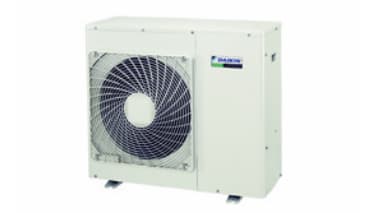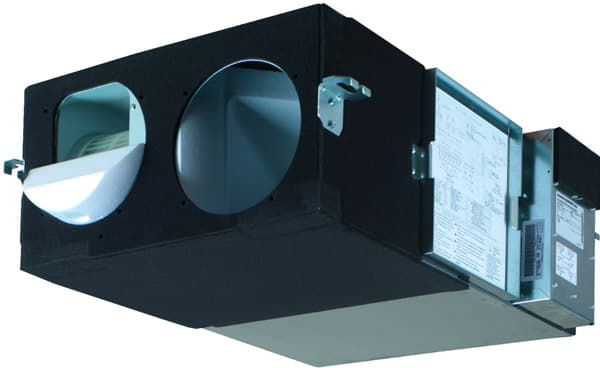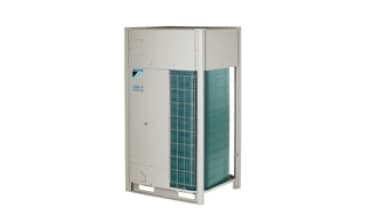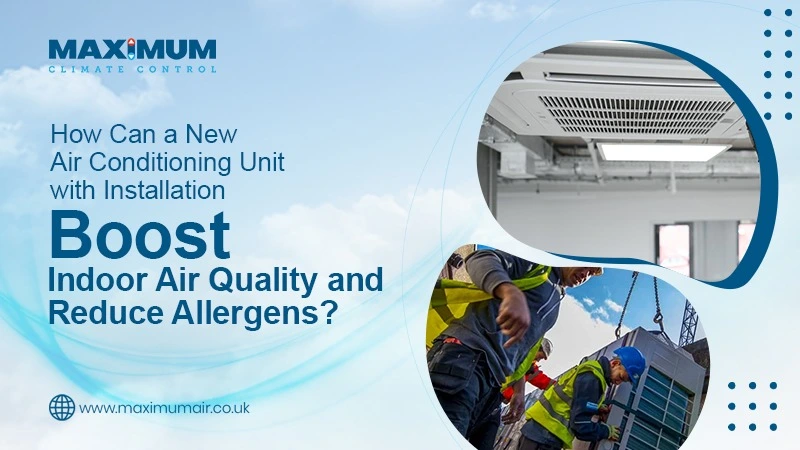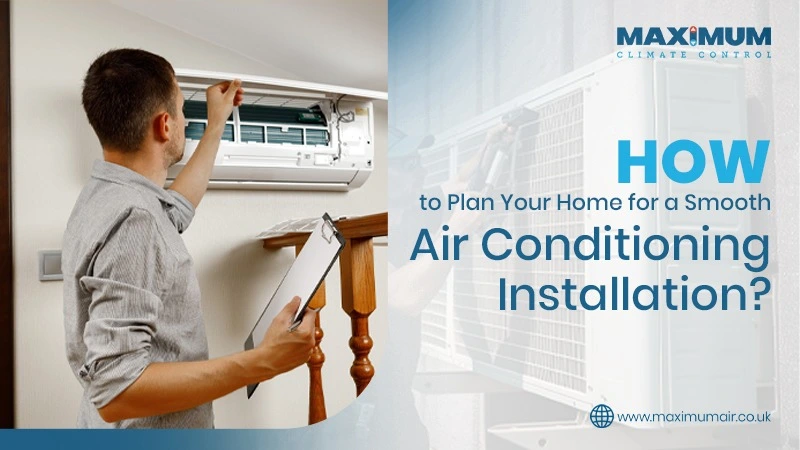Do Air Source Heat Pumps Work in Cold Weather?
February 10 2023by Maximum Climate Control
Air Source Heat Pumps in the Winter
Air source heat pumps are a fantastic way to heat your property and are extremely effective throughout the winter months. Air source heat pumps (ASHP’s) operate by transferring heat from the outside cool air to water, and heating rooms through underfloor heating or radiators. Many are curious as to how air source heat pumps work in cold weather, and here, we are going to talk you through everything you need to know about managing your unit in the winter months.
Contents:
- How do Air Source Heat Pumps Work in Cold Weather?
- Are Heat Pumps Good in Cold Weather?
- Ways to Protect your Air Source Heat Pump During Cold Weather
How do Air Source Heat Pumps Work in Cold Weather?
Most importantly, how do air source heat pumps work in cold weather?
Fortunately, air source heat pumps continue to work effectively despite colder temperatures. Ensuring your unit is maintained effectively by carrying out a regular service, it’s fully capable of functioning all the way down to -25°C. Heat in the air is still present in temperatures right down to -270°C making it possible for your heat pump system to continue transferring heat into your property.
Are Heat Pumps Good in Cold Weather?
Although it is still possible for your air source heat pump to operate in cold weather, it still may affect the unit’s ability to raise temperatures quickly. Air source heat pumps are prone to freezing in cold temperatures, this can affect the overall temperature of your property and the performance of your unit. If you find that your air source heat pump isn’t working effectively then it can be because it’s still defrosting, which is nothing to be concerned about.
Defrosting your Air Source Heat Pump
If you find that your unit has frozen, then we would recommend doing the following before calling out your local air conditioning engineer.
- Leave your heating set at 18 degrees centigrade.
- Be Patient
- Turn on the Fan
- Start your Unit ‘Defrosting Cycle’
- Contact your Local Engineer
Tips for Protecting your Heat Pump During Cold Weather
To make the most out of your heat pump and to ensure it works effectively all year round, our team of experienced HVAC system engineers have provided their tips and expert advice on caring for your air source heat pump in cold weather.
1. Leave your Heating On Overnight!
To manage your air source heat pump in cold weather and to prevent it from freezing due to continued use, the heating system needs to be left on overnight or over a weekend when the temperature gets close to freezing. This is especially important in cold snaps where the outside temperature does not exceed freezing.
Even with highly efficient ground source heat pumps the air-to-air heat pump still has a weak point which is the indoor temperature. If the indoor temperature drops to below 16 degrees centigrade then the system will struggle to heat up quickly and can take up to a day to raise temperatures above 16 degrees centigrade.
Despite outdoor temperatures dropping drastically, the key to the performance and operation of heat pumps is the indoor temperature. Outdoor temperatures can drop to -20 degrees centigrade and it will have no real effect, yet a decrease in indoor temperatures will quickly affect the performance of the system.
2. Service your Heat Pump
Having your air source heat pump system regularly serviced will ensure it performs effectively all year round. Another cause of the unit not working efficiently will be if the coils on the outdoor units are blocked, or if the indoor units’ filters are blocked, which will be an issue that will regularly occur in colder months.
3. Leave Space Around your Unit
Leaving space around your unit will help to improve the airflow whilst discouraging a build-up of snow or ice in colder temperatures. Make sure to clean around your unit and keep a 2-foot clearance ready for your heat pump to perform at its best ability when faced with cold weather.
4. Installer an ASHP Guard
An air source heat pump guard will provide your unit with extra protection in the winter and summer months. Not only are heat pumps exposed to snow and ice, but they also run the risk of being damaged by strong winds and debris. Purchasing a heat pump guard will ensure your unit is protected and performs effectively by maintaining good ventilation and airflow all year round, despite the temperature.
5. Do Not Increase the Temperature
When your heat pump system is exposed to colder temperatures it’s important to not increase the unit’s temperature. Increasing the temperature of your heat pump up to the 90s will not heat your property any faster, it will in fact burn an increased amount of energy.
We would recommend leaving your heat pump system at 18 degrees centigrade 24/7, especially at weekends. Some may say it’s a waste of energy, in fact, studies have found that energy is saved by leaving the heat pump system on at a lower temperature and raising indoor temperatures during occupancy. When someone comes into the premises in the morning and raises the temperature, the system will react quickly and will only take a short period of time and a small amount of energy to raise the temperature.
Air Source Heat Pumps in Cold Weather, Concluded
Now you can be sure that your air source heat pump will operate perfectly fine in cold weather. You may still find your energy bills have increased when the temperature drops as your heat pump will work harder to ensure your property is heated to the required temperature.
Although, overall installing an air-source heat pump is much more energy efficient than a gas boiler and will help to decrease your energy bills in the long run despite a drop in weather temperatures.
At Maximum Climate Control our team are experienced in installing and maintaining energy-efficient air source heat pump systems. From small office installations to large 5-star restaurants and hotels, our installation team are on hand to assist you with your unit whilst offering a professional installation service.
Get in touch with a friendly member of our team regarding the installation, service, maintenance and warranty of your heat pump system today.
Share this article
If you’re looking for advice or a quote for a new HVAC system or maintenance, get in touch with our expert!
Speak to an expert Explore Our Product RangeRelated Products
Air Source Heat Pump (ASHP)
Air Source Heat Pump (ASHP) is a system that transfers heat from outside to inside a building, or vice versa.
View Product InformationHeat Recovery Ventilation System VRV
Everybody appreciates and benefits from fresh air. The ability to provide fresh air.
View Product InformationVRV/VRF Systems
Larger air-conditioning systems are usually known as either VRV or VRF systems depending on the manufacturer.
View Product InformationFor further reading
February 26 2026By Maximum Climate Control
How Can a New Air Conditioning Unit with Installation Boost Indoor Air Quality and Reduce Allergens?
Have you ever noticed how the air inside your home can sometimes feel heavy, stale, or even a bit irritating to your lungs? Many homeowners struggle with trapped dust, pet dander, and seasonal pollen that circulate endlessly within their living […]
February 19 2026By Maximum Climate Control
How to Plan Your Home for a Smooth Air Conditioning Installation?
A well-planned house air conditioning installation can save time, reduce stress, and ensure the system performs efficiently from day one. Whether you are installing a new system or upgrading an existing one, preparing your house in advance makes the […]
